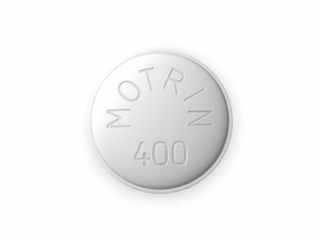Alzheimer’s Disease: symptomes
The increase in the number of elderly patients suffering from age-related dementia is a global trend. The early signs and symptoms are quite specific, and if a loved one is suspected of developing it, the situation should not be left unattended.
The disease is named after the doctor who first described such a medical case and published a detailed analysis. Described more than a century ago, this type of age-related dementia is still not fully understood. Scientists agree that it results from the formation of neurolytic plaques in the brain from misfolded proteins that cause the destruction of connections between nerve cells.
The nature of the pathology is not clear, but it is well established that the syndrome is inherited from close relatives. The risk increases with:
- Intracranial injuries
- Infection by dangerous infections
- Living in areas of toxic exposure
- Abnormalities of the immune system
There is a theory about the viral origin of the disease, but so far, it remains unconfirmed.
In the vast majority of cases (90%), it is diagnosed after the age of 65, sometimes developing between 45 and 60 years old. Cases of the disease in young people are rare and are due to a genetic mutation.
Did you know that Viagra, known for its use in treating erectile dysfunction, could be the key to fighting Alzheimer’s disease? Research conducted at the Cleveland Clinic suggests that sildenafil, the active ingredient in Viagra, may significantly reduce the risk of developing this neurodegenerative disease.
How Alzheimer’s Disease Begins
The early symptoms of dementia in the elderly often go unnoticed for a long time. The patient himself often cannot correctly assess his condition, and family members attribute it to vague signs of aging. Early symptoms include:
- Abstraction: A person forgets where they were going, what they did a few minutes ago, loses the thread of the conversation, and gets distracted while driving.
- Decreased Activity and Interest in Life: Neglect of personal hygiene standards, resistance to any innovation, postponing important matters.
- Difficulty Understanding the Interlocutor and Selecting Words: Issues with active speech and perception of numbers, such as the inability to pay in a store.
- Difficulty Remembering New Information and Recalling Old Memories: Events fall out of memory in fragments – a person forgets the names of children but remembers the age of their spouse.
- Mood Instability: Apathy is suddenly replaced by irritability and anger.
Early Signs of Alzheimer’s Disease
- Weakening of Short-Term, Then Long-Term Memory: It begins with common forgetfulness. At the intermediate stage of the disease, the patient barely remembers events from their youth, then forgets their own name and does not recognize their relatives.
- Physical Manifestations: The pathology physically manifests as a lack of coordination and a change in gait – steps become uncertain and shuffling.
- Loss of Household Independence: The person does not recognize their belongings or remember how to use them, does not know how to cook, and often forgets to turn off the gas and water.
- Psycho-Emotional State: Characterized by feelings of disappointment and dissatisfaction. Negative emotions intensify at night. Depression is possible.
- Communication Difficulties: The patient experiences difficulties in communication and gradually ceases to make contact.
The specifics and pace of the disorder’s development depend on many factors, but unfortunately, the outcome is always the same – the patient needs constant supervision and professional care.
Advanced Stage Symptoms of Alzheimer’s Disease
The consequences of brain atrophy are irreversible and appear depressing. The patient becomes alienated, craves complete solitude, does not leave their room for several days, and does not respond to calls. Speech becomes incoherent, often meaningless – just a collection of words on different topics and contents. A severe degree of dementia is characterized by a complete disintegration of personality, a rejection of oneself as a family and society member.
Physical Symptoms
- Loss of Control Over Bodily Functions: The patient does not control urination and defecation and loses the ability to walk.
- Significant Weight Loss: Often approaching dystrophy levels, with the skin becoming dry and cracking.
Early Signs of Alzheimer’s Disease
- Memory Impairment: Weakening of short-term, then long-term memory. Initially, it starts with common forgetfulness. In the intermediate stage, the patient barely remembers events from their youth, then forgets their own name and does not recognize their relatives.
- Physical Manifestations: Lack of coordination and a change in gait – steps become uncertain and shuffling.
- Loss of Household Independence: The person does not recognize their belongings, does not remember how to use them, does not know how to cook, and often forgets to turn off the gas and water.
- Psycho-Emotional State: Characterized by feelings of disappointment and dissatisfaction. Negative emotions intensify at night. Depression is possible.
- Communication Difficulties: The patient experiences difficulties in communication and gradually ceases to make contact.
Symptoms Preceding Dementia
These manifestations can be observed several years before diagnosis. The problem is that few people know what to look for and the cost of delay when unpleasant suspicions arise:
- Working Memory Impairment: Trouble remembering recent events or new information.
- Confusion and Inability to Concentrate: Difficulty focusing on tasks or conversations.
- Logical and Abstract Thinking Impairment: Struggle with problem-solving or understanding abstract concepts.
- Difficulty Acquiring New Skills: Trouble learning new tasks or remembering instructions.
- Mild Cognitive Deviations: Detected only during special tests.
Early or Initial Stage
- Moderate Progression of Memory Loss: Increasing forgetfulness and difficulty recalling recent events.
- Agnosia: Impaired perception of different types.
- Reduced Vocabulary: Pauses in speech, slow pronunciation of phrases.
- Preservation of Daily Functions: Automatic daily routines are preserved, with clarity of consciousness.
- Aggravation of Symptoms: All early symptoms of Alzheimer’s disease in adults are exacerbated, with physical manifestations added.
Moderate Form of Alzheimer’s Disease
- Difficulty with Complex Household Tasks: Inability to pay utility bills, cook, or manage finances.
- Professional Degradation: Decline in work performance and skills.
- Emotional Changes: Increased irritability and susceptibility to mood swings.
- Need for Wandering: A significant source of stress for the family, as unauthorized absences from home pose dangers due to coordination and orientation issues.
Severe Form of Alzheimer’s Disease
- Total Inability to Communicate: The patient can no longer speak clearly or understand what is happening around them.
- Cognitive Decline: All cognitive abilities are lost, with no reaction to auditory or visual stimuli.
- Physical Deterioration: Immobility leads to bedsores, infections, and eventually death.
Gender-Specific Symptoms
- Women: Dementia is diagnosed 2.5 times more often in women. They may exhibit unreasonable loss of pleasure in life, depressive moods, and hysterical behaviors. They often notice their whims but are embarrassed, trying to maintain social appearance and status.
- Men: The disease tends to progress aggressively, with psychological, physical, and sometimes sexual aggression. Dementia progresses slowly, often appearing as age-related character deterioration.
The prognosis for diagnosing Alzheimer’s disease is disappointing: the average life expectancy for this disease does not exceed 10 years. Loss of vital functions leads to death in 100% of cases. The onset of the final stage is the loss of the swallowing reflex.













